Curtains are more than only a purposeful aspect of domestic decor—they provide an opportunity to exhibit fashion and creativity. The way you drape curtains can dramatically impact the atmosphere of any room. From formal pleats to comfortable tie-top patterns, curtain draping performs an essential role in transforming your area. Below, we explore 10 fashionable curtain draping styles to raise your home decoration and add a personal view for your windows.
Classic Pleat Draping
Features of Classic Pleat Draping
Classic pleat draping is all about creating based, lightly spaced folds that convey sophistication to any room. This undying style works nicely in formal areas like eating rooms or workplaces, in which a clean, polished appearance is important.
Pros:
- Provides a neat and elegant appearance.
- Ideal for formal rooms or traditional decor.
Cons:
- Requires regular maintenance to keep pleats crisp.
- May look too rigid for casual settings.

Ripple Fold Draping
Features of Ripple Fold Draping
Ripple fold draping creates smooth, continuous folds that cascade smoothly from the top of the curtain to the ground. This style brings a comfortable, current vibe to your decor, making it best for dwelling rooms or bedrooms that have the intention of a cutting-edge yet cozy experience.
Pros:
- Soft, flowing appearance adds a contemporary touch.
- Easy to operate and maintain.
Cons:
- Requires precise measurements for perfect folds.
- May not suit more traditional settings.
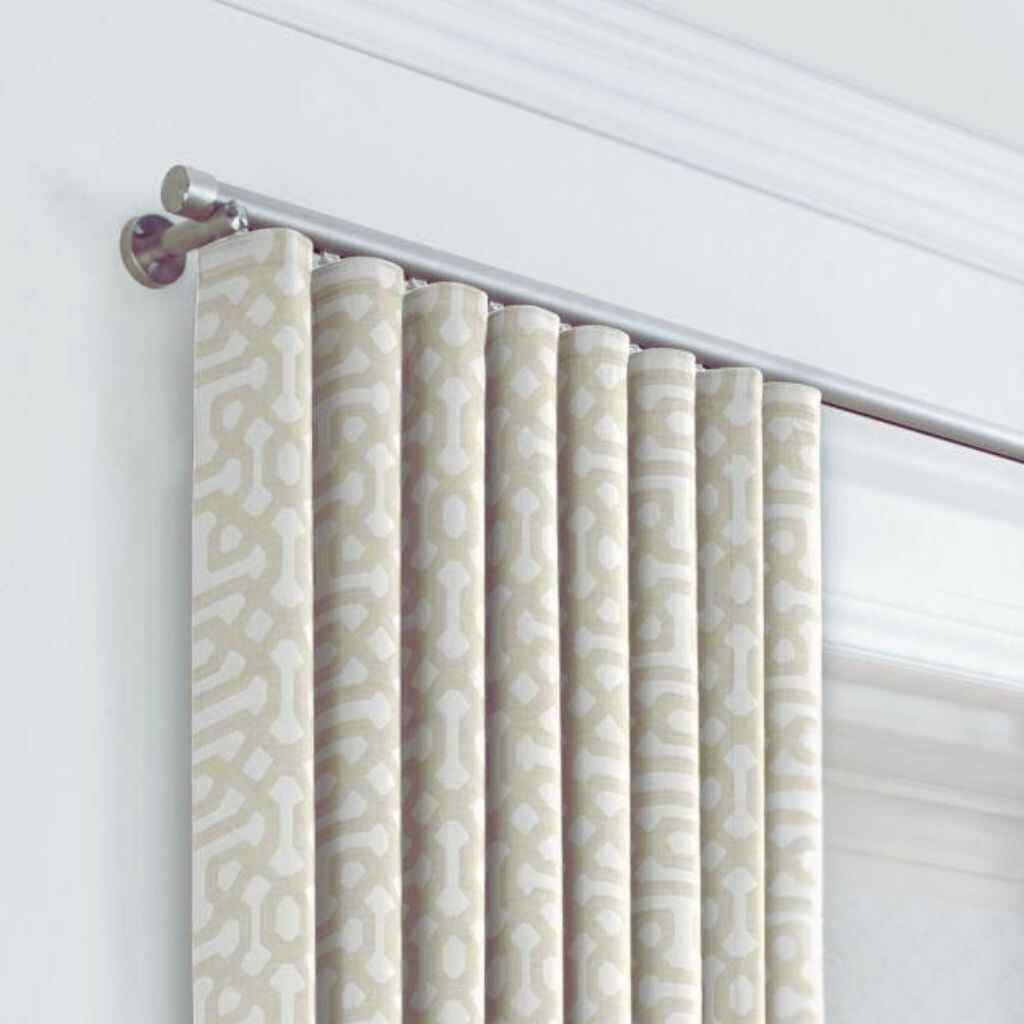
Tie-Back Draping
Features of Tie-Back Draping
Tie-again draping includes pulling back the curtains and securing them with ornamental ties, ropes, or holdbacks. This style provides a touch of elegance and is generally utilized in formal rooms to create a conventional, subtle look. Tie-backs may be easy or ornamental, depending on the layout of the room.
Pros:
- Adds a sophisticated, completed appearance to window remedies.
- Allows for flexibility in adjusting the amount of mild getting into the room.
Cons:
- Requires extra hardware or ties.
- Not as realistic for everyday use.

Swag Draping
Features of Swag Draping
Swag draping gives a dramatic and pricey contact by way of allowing the curtain fabric to cascade in fashionable curves or loops over the top of the window. This style is regularly utilized in traditional, grand rooms, which include formal residing rooms or master bedrooms.
Pros:
- Adds drama and beauty to any room.
- Perfect for creating a costly ambiance.
Cons:
- Can be difficult to put in and keep.
- Best desirable for larger, greater formal spaces.
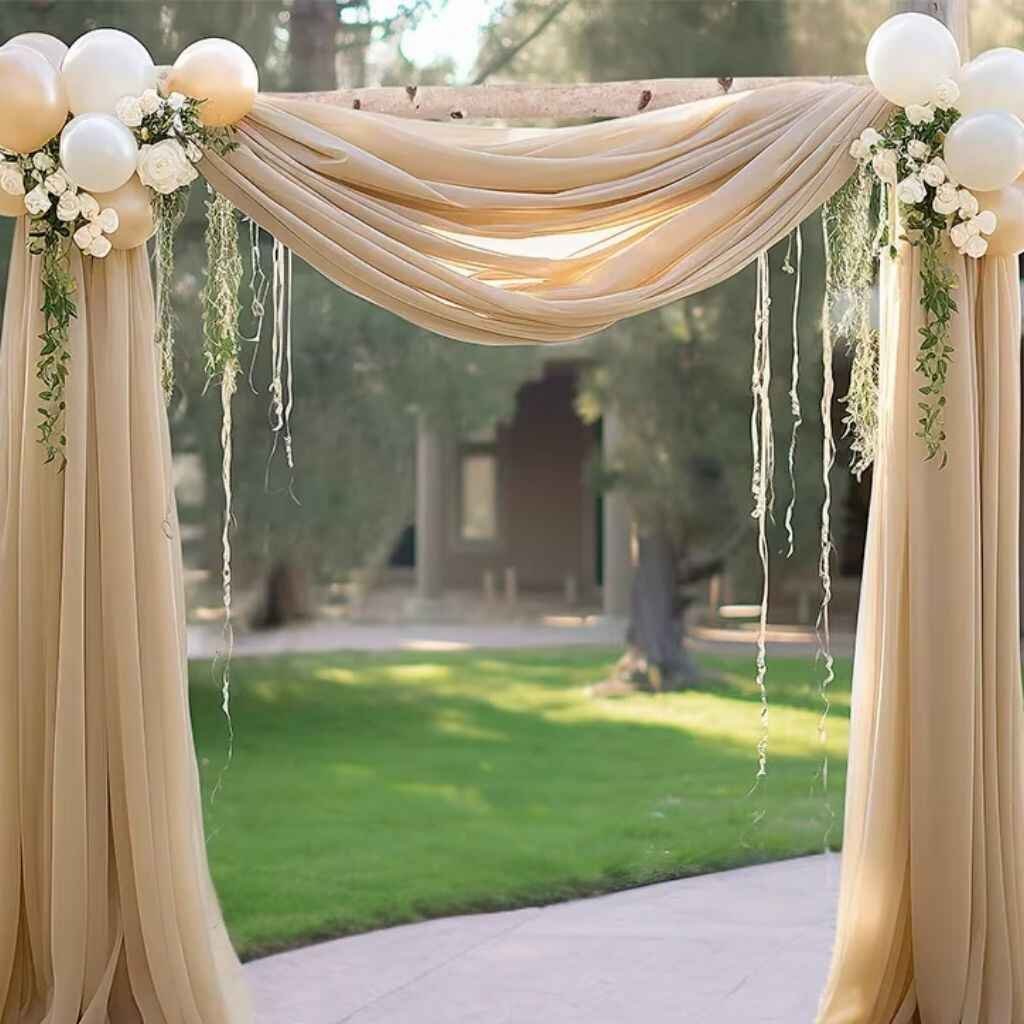
Puddle Draping
Features of Puddle Draping
Puddle draping involves permitting extra material to pool or “puddle” on the ground, growing a sense of luxury and comfort. This style is best for grand, formal areas, which include a pricey touch to the room’s decor.
Pros:
- Creates a high-priced, high-give-up look.
- Ideal for formal rooms or bedrooms with high ceilings.
Cons:
- Requires common cleansing because of the greater fabric on the ground.
- May not match smaller rooms or minimalist designs.
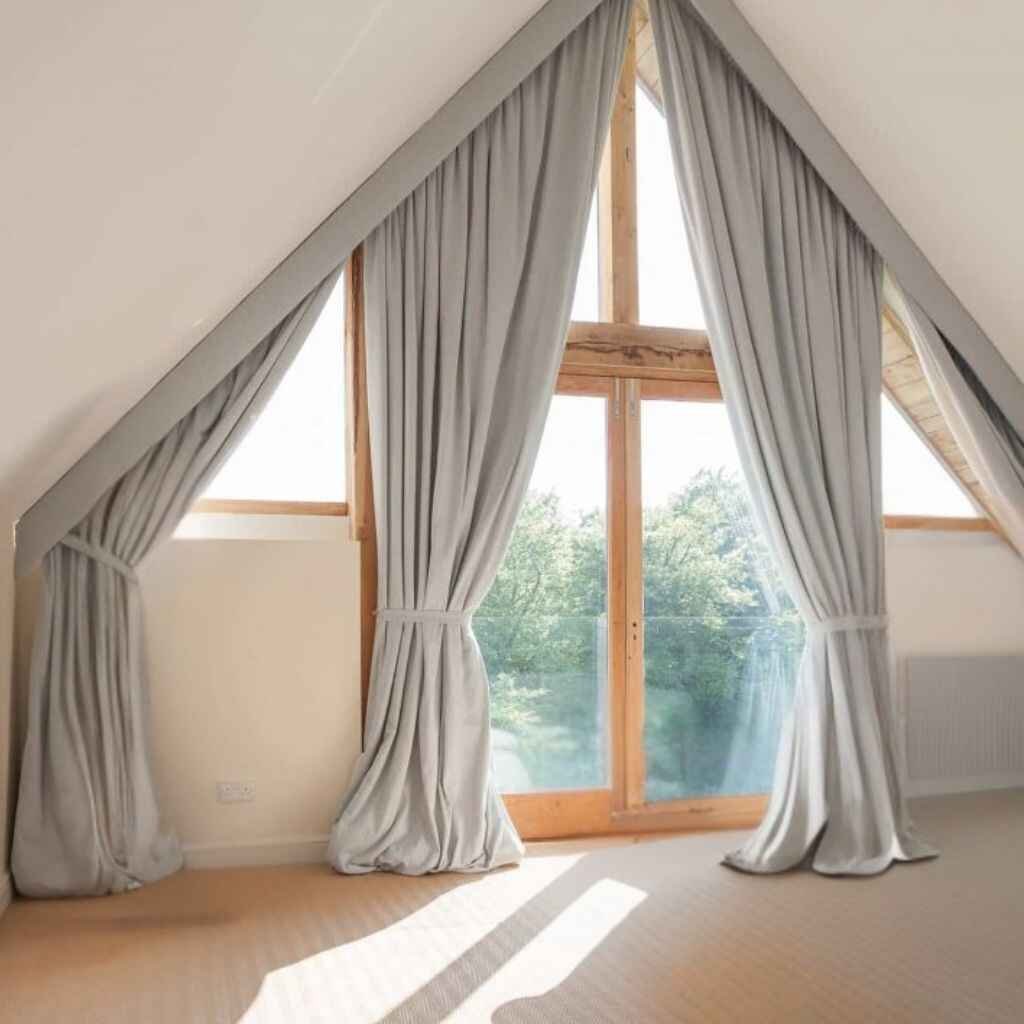
Scarf Draping
Features of Scarf Draping
Scarf draping is a casual and flexible fashion where material is loosely draped over a curtain rod or hooks, growing soft, comfortable curves. This draping fashion provides an informal beauty to areas and is regularly utilized in bedrooms or casual living rooms.
Pros:
- Simple and easy to achieve with minimum attempt.
- Creates a relaxed, informal aesthetic.
Cons:
- May lack the established look of extra formal draping styles.
- Does not provide as much privacy or light manipulation.
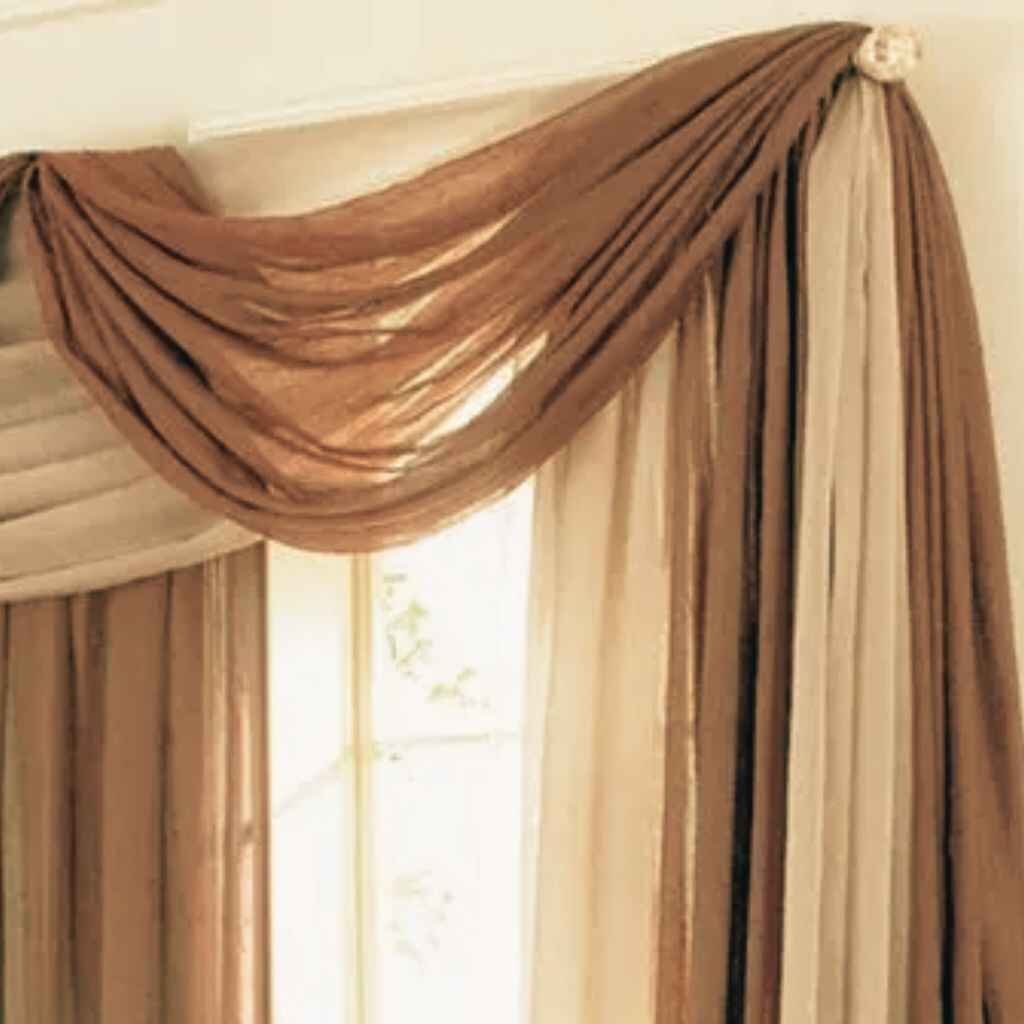
Blouson Draping
Features of Blouson Draping
Blouson draping entails gathering the fabric along the curtain to form supple, balloon-like puffs. This style adds dimension and texture, giving it a totally original and intriguing choice for living areas, bedrooms, or even nurseries.
Pros:
- Adds a fanciful, playful touch to any room.
- Ideal for including texture and hobbies in your decor.
Cons:
- Can be elaborate to execute and maintain.
- May not match minimal or current decor styles.
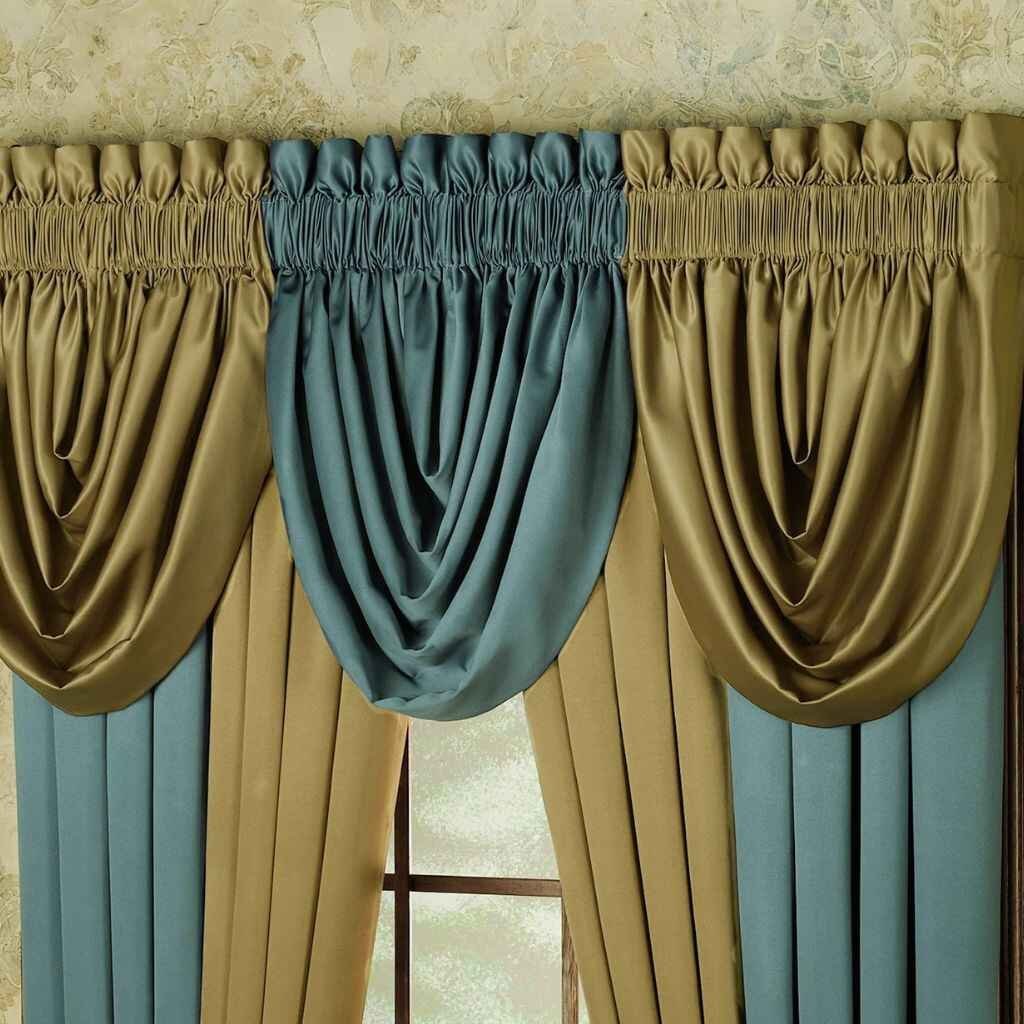
Layered Draping
Features of Layered Draping
Layered draping entails the usage of a couple of layers of curtains to create depth and texture in a room. Combining different fabrics, consisting of a sheer layer with a heavier drape, provides measurement and flexibility for your decor, taking into consideration extra light management and privacy options.
Pros:
- Offers flexibility with mild management and privateness.
- Adds intensity and texture to the room.
Cons:
- Can be more expensive due to the need for more than one curtain layer.
- Requires careful coordination to keep away from a cluttered look.
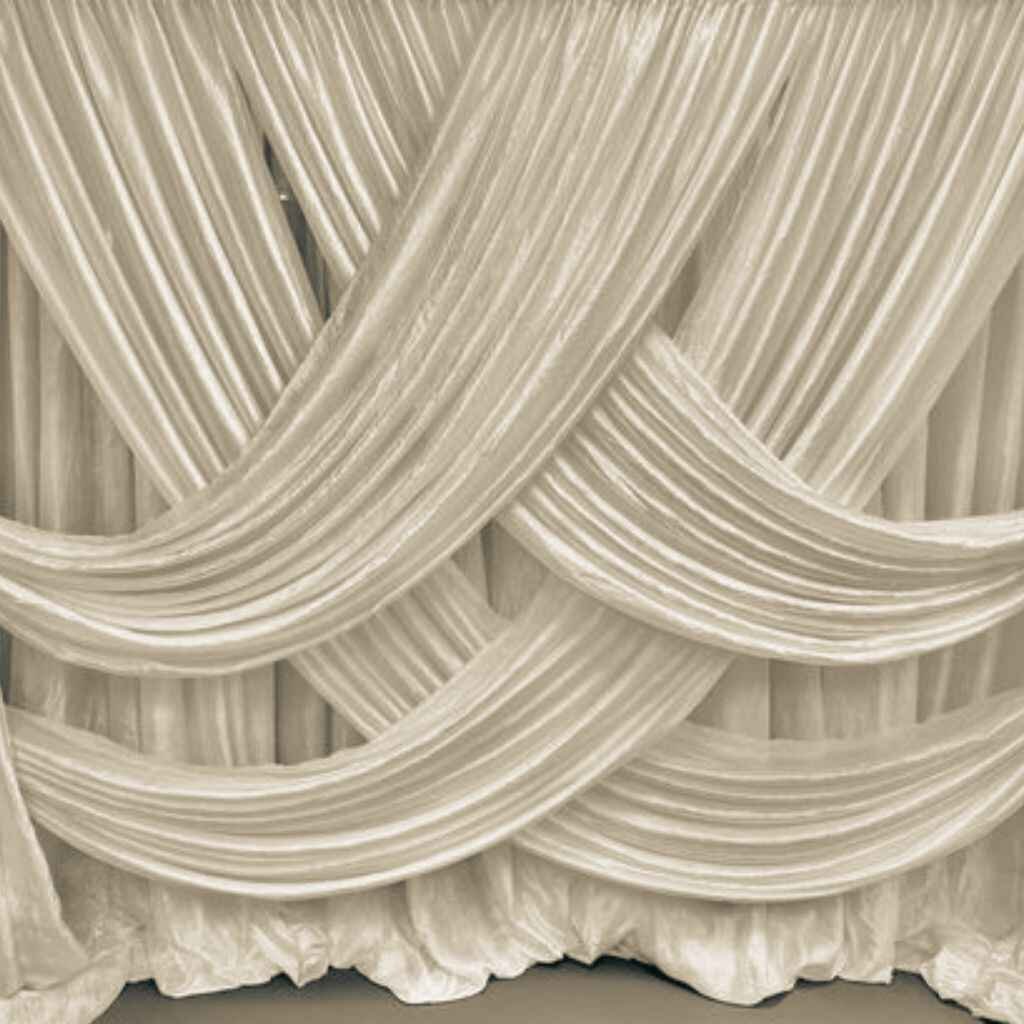
Asymmetrical Draping
Features of Asymmetrical Draping
Asymmetrical draping embraces imaginative, asymmetrical folds that give the space a gift-day artistic touch. This fashion is perfect for house owners looking for a powerful, precise assertion in their decor.
Pros:
- Adds an innovative and cutting-edge flair to any area.
- Perfect for making an ambitious, creative statement.
Cons:
- Can be difficult to execute effectively.
- May not match conventional or symmetrical decor patterns.
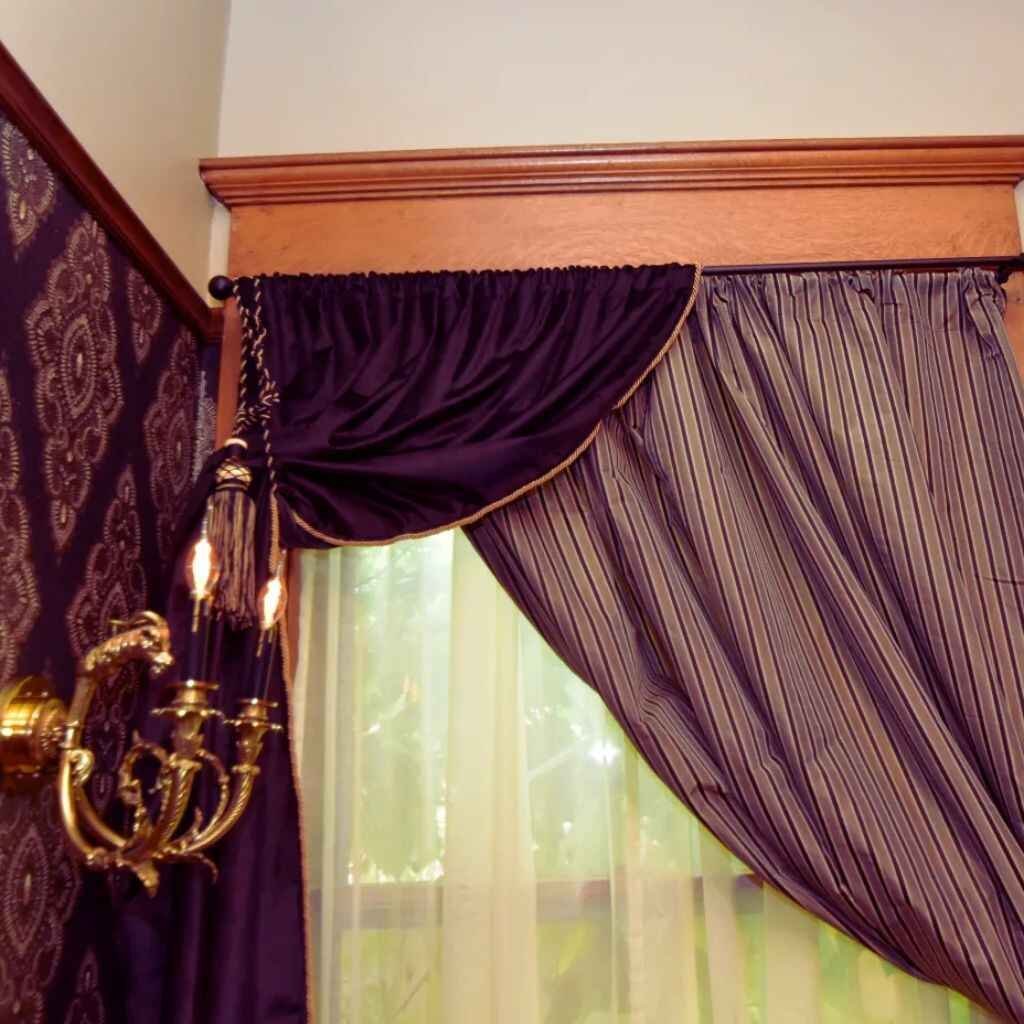
Tie-Top Draping
Features of Tie-Top Draping
Tie-pinnacle draping features soft, comfortable curtains tied at the pinnacle to create a casual and alluring environment. This style is good for bedrooms or spaces in which a laid-returned, rustic allure is desired
Pros:
- Simple and casual, ideal for relaxed spaces.
- Easy to install and adjust.
Cons:
- Not suited for formal settings.
- Fabric ties may wear out over time.
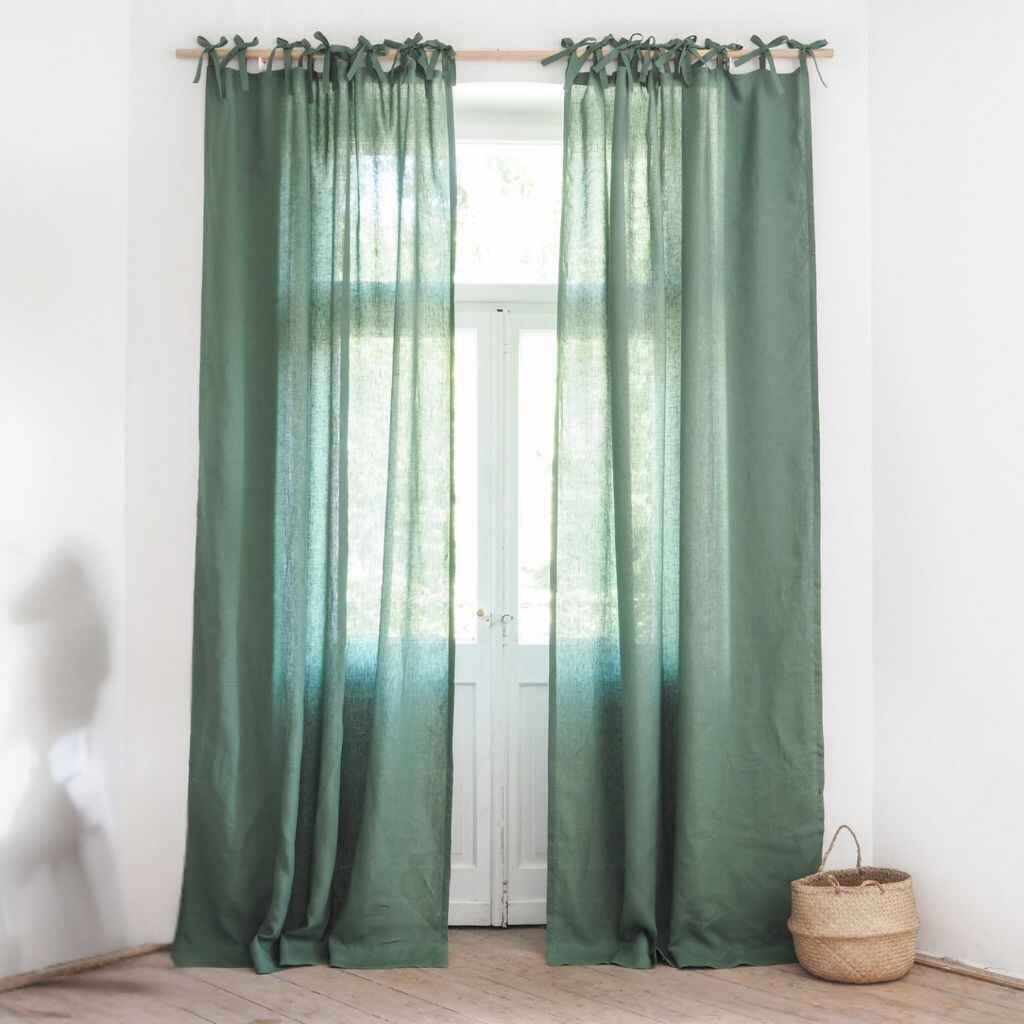
Conclusion!
Choosing the proper curtain draping styles is important to raising your property decor. Whether you are aiming for formal elegance with classic pleat draping or a relaxed, casual vibe with headscarf draping, each fashion gives a unique way to enhance your space. From the drama of swag draping to the softness of tie-pinnacle draping, you may transform any room right into a more inviting and fashionable environment.
Draping is an art form in itself, and the appropriate fashion can bring both splendor and functionality to your property. When choosing the precise curtain draping style, keep in mind the room’s cause, your non-public aesthetic, and the extent of preservation required. By expertise in those exclusive curtain draping styles, you’ll have the tools to create window treatments that mirror your character and decorate your house’s typical decor.

[…] rods are a diffused yet important detail in home decor, influencing the overall appearance and functionality of your window treatments. From the undying […]
[…] the proper curtain length and draping style is essential for reinforcing the aesthetics of a room while making sure functionality. Whether […]
[…] tiebacks are more than simply functional and play an important role in curtain draping styles. They’re a fashionable accessory that can rework the appearance of your drapery. By amassing […]
[…] curtains are available in a variety of panel styles, including rod pocket, grommet and tab-top designs. Rod pocket panels lend a more traditional, […]
I appreciate the breakdown of each draping style. It’s great to see the variety in options—from something more traditional like classic pleats to the more relaxed and casual tie-top. This really opens up possibilities for customizing a space.